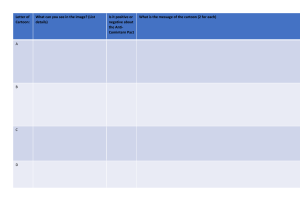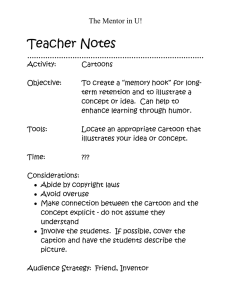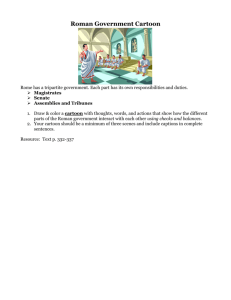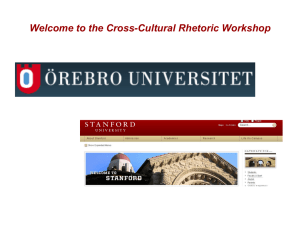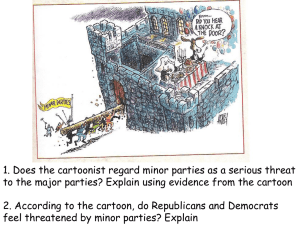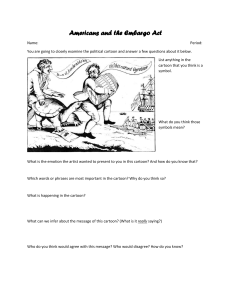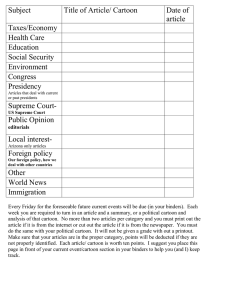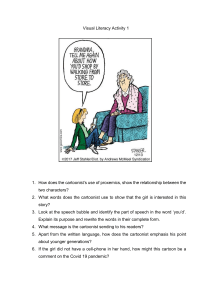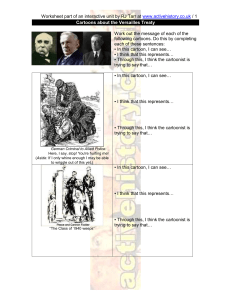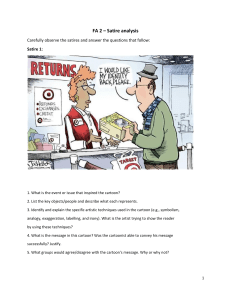Using APPARTS to analyze a visual image- Tar and Feathering of a Tax Collector
advertisement
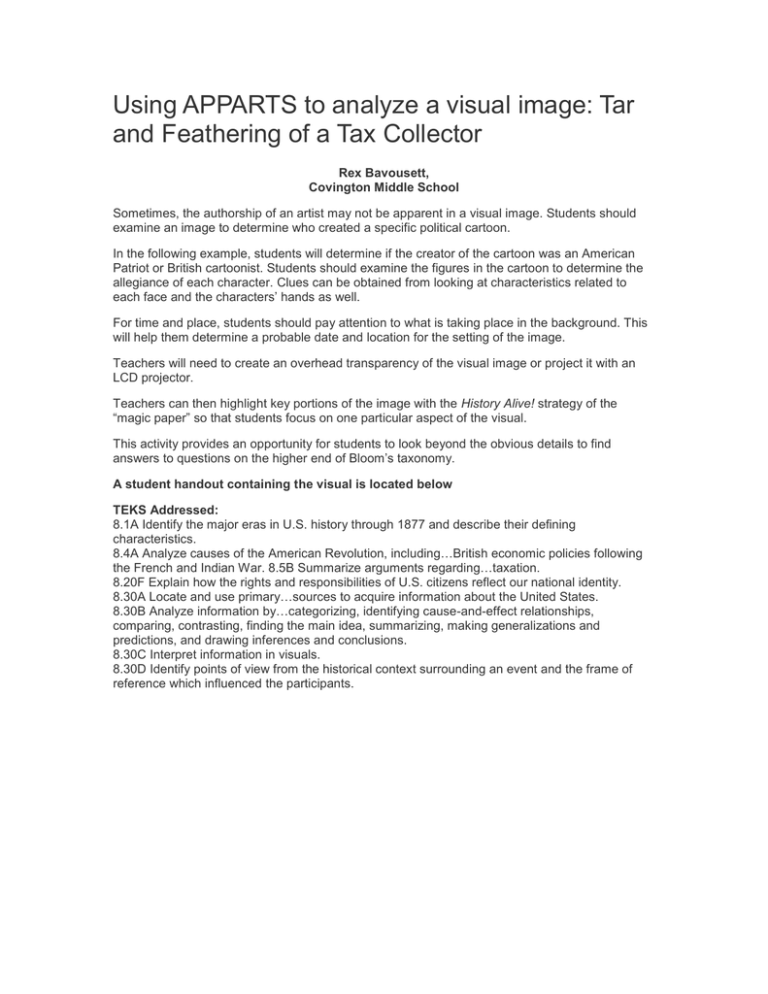
Using APPARTS to analyze a visual image: Tar and Feathering of a Tax Collector Rex Bavousett, Covington Middle School Sometimes, the authorship of an artist may not be apparent in a visual image. Students should examine an image to determine who created a specific political cartoon. In the following example, students will determine if the creator of the cartoon was an American Patriot or British cartoonist. Students should examine the figures in the cartoon to determine the allegiance of each character. Clues can be obtained from looking at characteristics related to each face and the characters’ hands as well. For time and place, students should pay attention to what is taking place in the background. This will help them determine a probable date and location for the setting of the image. Teachers will need to create an overhead transparency of the visual image or project it with an LCD projector. Teachers can then highlight key portions of the image with the History Alive! strategy of the “magic paper” so that students focus on one particular aspect of the visual. This activity provides an opportunity for students to look beyond the obvious details to find answers to questions on the higher end of Bloom’s taxonomy. A student handout containing the visual is located below TEKS Addressed: 8.1A Identify the major eras in U.S. history through 1877 and describe their defining characteristics. 8.4A Analyze causes of the American Revolution, including…British economic policies following the French and Indian War. 8.5B Summarize arguments regarding…taxation. 8.20F Explain how the rights and responsibilities of U.S. citizens reflect our national identity. 8.30A Locate and use primary…sources to acquire information about the United States. 8.30B Analyze information by…categorizing, identifying cause-and-effect relationships, comparing, contrasting, finding the main idea, summarizing, making generalizations and predictions, and drawing inferences and conclusions. 8.30C Interpret information in visuals. 8.30D Identify points of view from the historical context surrounding an event and the frame of reference which influenced the participants.
